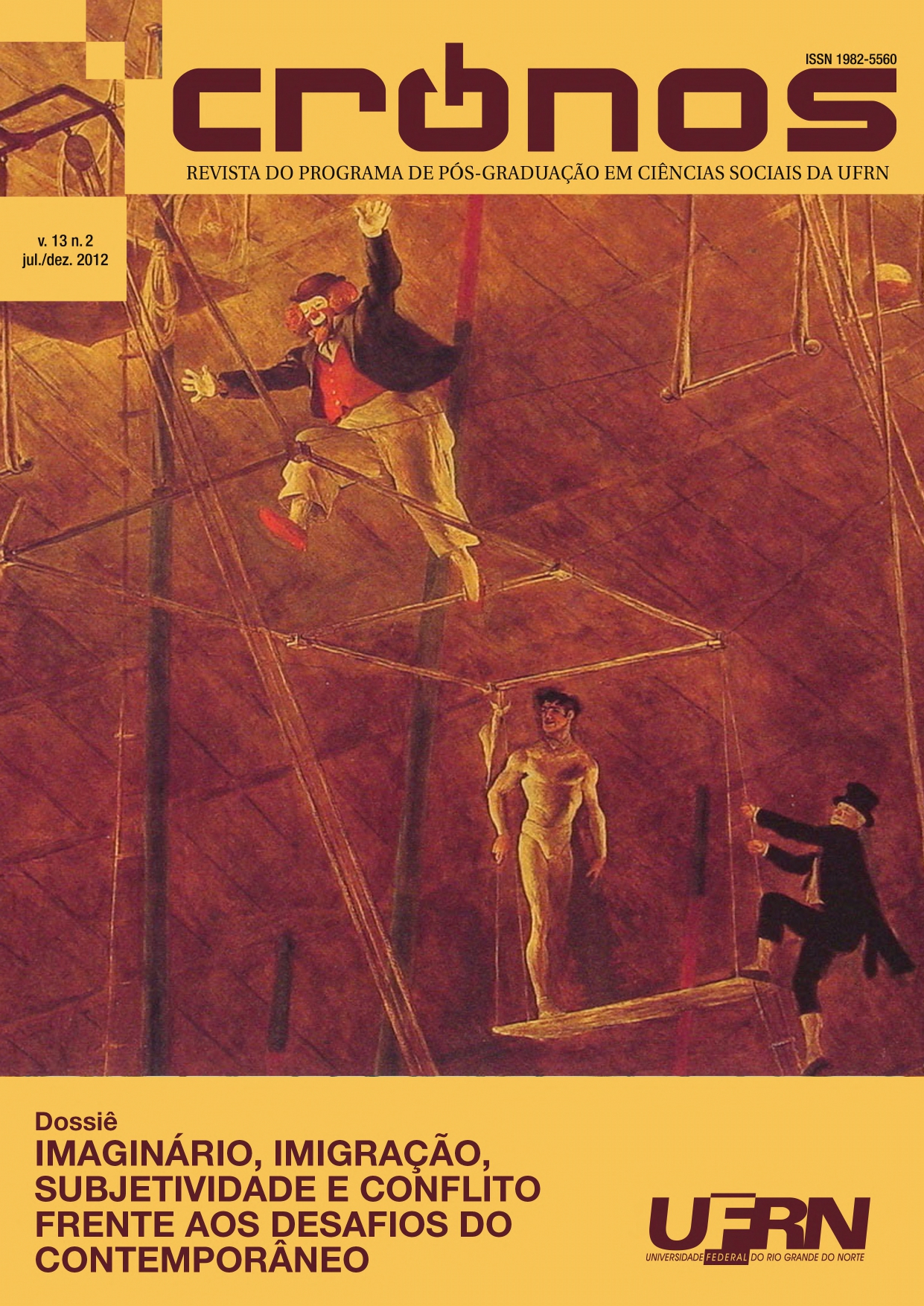PRODUÇÃO DE SUBJETIVIDADE NO CAPITALISMO CONTEMPORÂNEO
DOI:
https://doi.org/10.21680/1982-5560.2012v13n2ID26467Keywords:
Neoliberalismo, Subjetividade Maquínica, Sujeição Social, Servidão Maquínica, Subjetivação PolíticaAbstract
The crisis that, since the 1970s, capitalism has been trying to overcome is, in addition to the obvious economic and political crises, the crisis of subjectivity. This is undoubtedly a fundamental problem of current societies that needs to be analyzed and understood in its entirety. Keeping up with the technological pace, contemporary capitalism has become, over the years, gradually machinocentric. Increasingly, subjects are inserted in circuits of men and machines combined. In the conception of Gilles Deleuze and Félix Guattari, neoliberal societies, marked by the post-Fordist mode of production and a system geared towards consumption, developed a production regime of machinic subjectivity. In parallel to social subjection, a generalized machinic servitude regime was set up. In current Western societies, subjectivities are produced in the convergence of these two regimes. However, this process does not occur without resistance. It is necessary to consider the political subjectivations, characterized by the ruptures, creations and potencies of desire, which dynamize micropolitics that are irreducible to the current domination processes. In this essay, we present some reflections on these issues, mainly in the light of Gilles Deleuze, Félix Guattari and Maurizio Lazzarato.
Downloads
Downloads
Published
How to Cite
Issue
Section
License
Copyright (c) 2022 Revista Cronos

This work is licensed under a Creative Commons Attribution-NonCommercial-ShareAlike 4.0 International License.


 English
English Español (España)
Español (España) Português (Brasil)
Português (Brasil)


